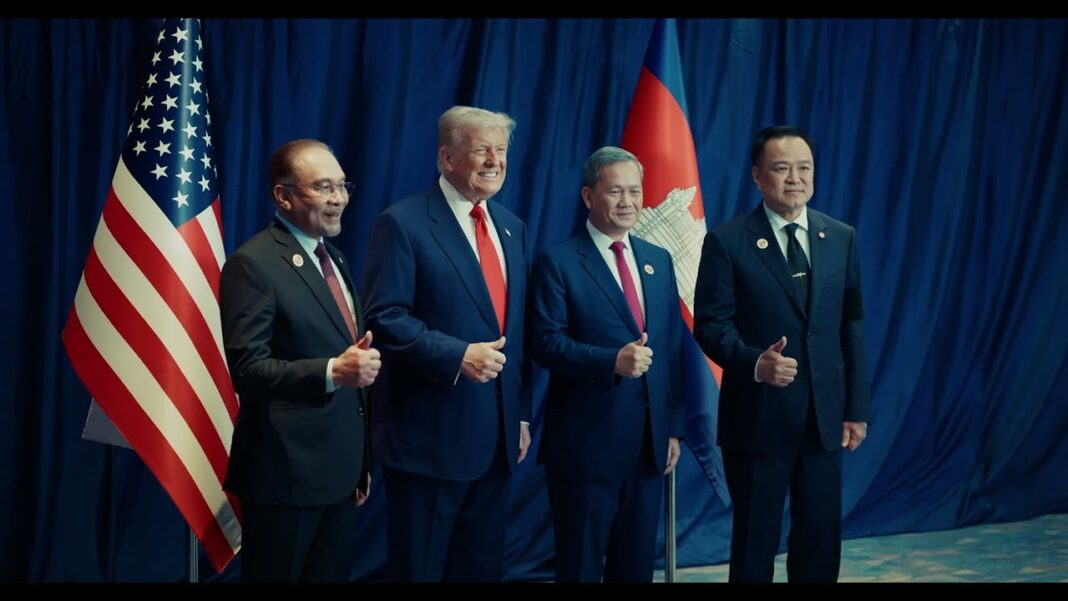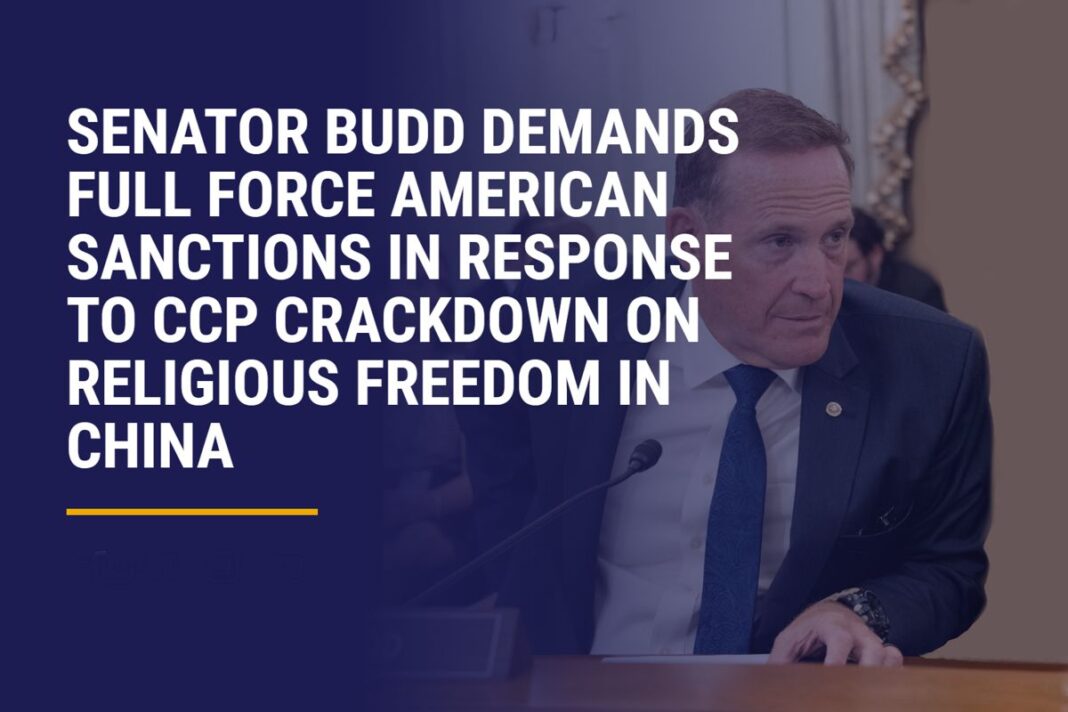ASEAN’s 11 members also comprise China’s biggest trading partner, with bilateral trade totaling $771 billion last year.
U.S. President Donald Trump has signed deal after deal during an Asia tour that will culminate with a meeting with Chinese Communist Party (CCP) leader Xi Jinping this week. Meanwhile, Beijing is trying to drive a wedge between Asian nations and the United States as Chinese officials seek their own trade deals.
The trip is bookended by two major Asian summits—ASEAN in Malaysia and APEC in South Korea—allowing for potential meetings with dozens of nations on the sidelines.
Here’s a tally of agreements the United States and China have secured.
ASEAN Deals
Trump’s arrival in Malaysia on Oct. 26 coincided with the start of the Association of Southeast Asian Nations (ASEAN) summit, where he oversaw the signing of a peace deal he helped broker between Thailand and Cambodia.
On the same day, the White House announced that trade deals had been signed with Cambodia and Malaysia, and that frameworks for trade deals had been reached with Thailand and Vietnam. Enhancing cooperation in security and combating transnational crime was also agreed upon during Trump’s one-day stop in Malaysia.
Malaysia will give preferential access to U.S. agricultural goods and reduce barriers to entry for U.S. cars. Malaysia also agreed to make various U.S. purchases in energy and tech: liquid natural gas worth $3.4 billion annually from the United States; $42.6 million annually in coal; $119 million in telecommunications products; 30 Boeing aircraft; and U.S. semiconductors, aerospace components, and data center equipment worth $150 billion.
The United States and Malaysia upgraded their relationship to a Comprehensive Strategic Partnership for the first time, enabling cooperation on maritime security.
Cambodia will eliminate all tariffs on U.S. goods. The United States and Cambodia also reached a security agreement, with the United States lifting an arms embargo on Cambodia, increasing the number of seats for Cambodian officers at U.S. military colleges, and both sides agreeing to restart joint defense exercises. Cambodia also agreed to work with the United States on combating transnational crime, including drug trafficking and online scam rings.
Thailand agreed to eliminate most tariffs on all U.S. industrial, food, and agricultural goods. It also agreed to enhance cooperation with the United States on investigating online scam rings.
Vietnam agreed to give preferential market access to U.S. industrial and agricultural goods, and several Vietnamese companies already signed memorandums of understanding to buy about $2.9 billion worth of agricultural products. Vietnam must finalize reforms to protect intellectual property and meet good regulatory standards before a final deal with the United States is signed. Vietnam has also agreed to purchase 50 Boeing aircraft worth more than $8 billion.
ASEAN’s 11 members also comprise China’s biggest trading partner, with bilateral trade totalling $771 billion last year.
In Trump’s absence, Chinese Premier Li Qiang on Oct. 27 gave a speech at the ASEAN summit, urging member nations to come together to stand up to “protectionism” and tariffs, and “promote reform” in the global governance system.
Trump has said that the tariffs were imposed to address growing trade deficits and other countries’ trade barriers that are unfair to the United States, and in China’s case, to stem the country’s export of fentanyl precursors, which the U.S. president said have fueled the opioid crisis in America.
The Philippines, which is set to become the next ASEAN summit chair for 2026, challenged Beijing’s statements of wanting peace when Philippine President Ferdinand Marcos Jr. raised instances of Chinese aggression on Philippine vessels in the South China Sea.
On the last day of the summit on Tuesday, the bloc signed a 3.0 version of its free trade agreement with China that covers new sectors, including digital and green economies.
“The upgrade will further reduce trade barriers, strengthen supply chain connectivity, and unlock opportunities in future growth areas,” Singaporean Prime Minister Lawrence Wong said.
China has previously said the agreement would pave the way for improved market access in sectors such as agriculture, the digital economy, and pharmaceuticals between China and ASEAN.








